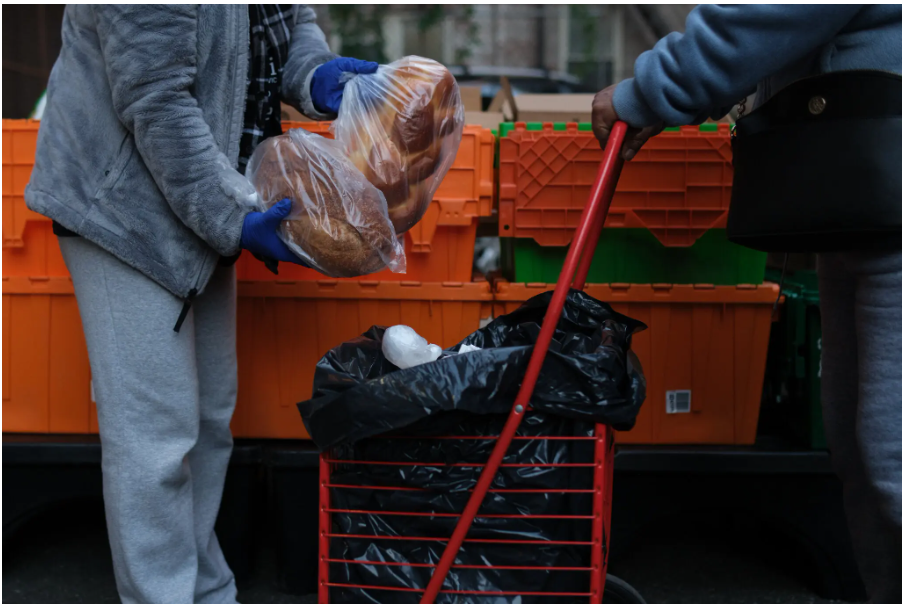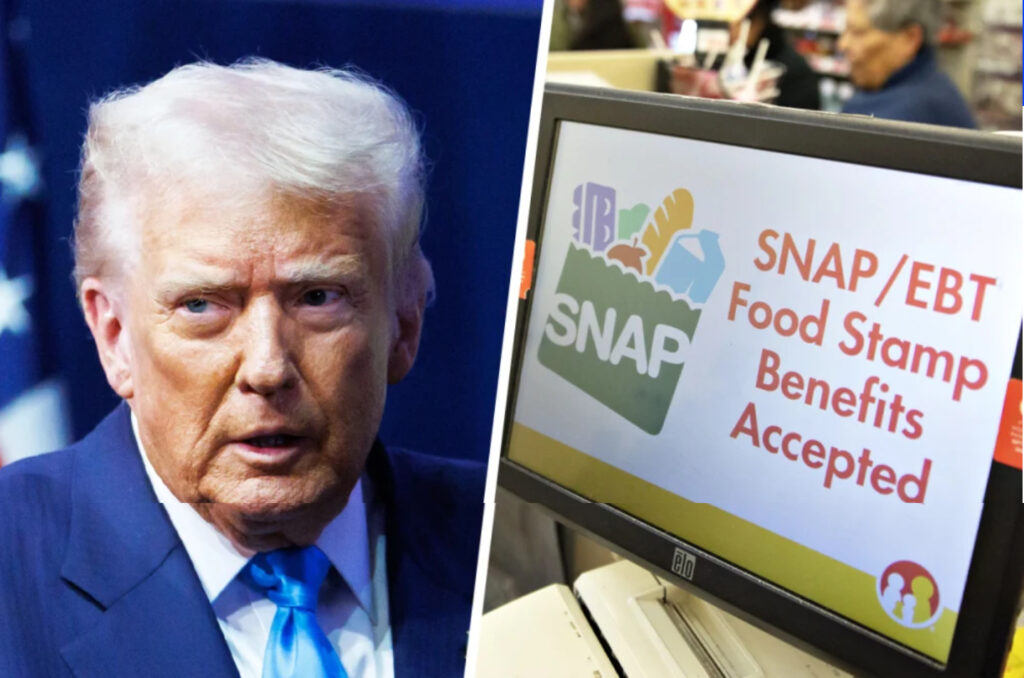The Trump administration told states that they must “immediately undo” any actions to provide full food stamp benefits to low-income families, in a move that added to the chaos and uncertainty surrounding the nation’s largest anti-hunger program during the government shutdown.
The Agriculture Department issued the command in a late-night Saturday memo, viewed later by The New York Times. That guidance threatened to impose financial penalties on states that did not “comply” quickly with the government’s new orders.
By this morning, officials in several states said they were unsure how the latest directive from the Trump administration would affect the Supplemental Nutrition Assistance Program, known as SNAP. The program, which serves one in eight Americans, has already faced staggering disruptions in recent days, as President Trump and his top aides have refused to fund it fully while the government remains closed.

Some of the roughly 42 million families enrolled in SNAP began to receive their full benefits on Friday, after a federal judge ordered the Trump administration to fully fund the program this month amid the shutdown. States like New York, Oregon, Pennsylvania and Wisconsin raced to release the aid to residents, some of whom had been without nutrition assistance for days.
Soon after, though, the Supreme Court temporarily paused the judge’s order so that an appeals court could further review it, leaving the entire program in legal limbo. That review remains underway, and the decision could force the government to tap an ample store of reserves — totaling into the tens of billions of dollars — to preserve full SNAP benefits.
The Agriculture Department did not respond to a request for comment.
The food stamp program is funded by the federal government but largely managed by states. To provide benefits, states send files to processors, which manage the electronic benefit transfer system, known as E.B.T. These vendors then make the funds available on E.B.T. cards, which are the primary way that SNAP recipients purchase groceries.
In its guidance, the Agriculture Department said states may not send E.B.T. processors the files that would be required to provide full benefits. Rather, the agency said states must only send files for “partial” benefits, meaning that food stamp recipients would see their payments substantially cut.
“To the extent states sent full SNAP payment files for November 2025, this was unauthorized,” wrote Patrick A. Penn, a top official at the Agriculture Department. “Accordingly, states must immediately undo any steps taken to issue full SNAP benefits for November 2025.”
David A. Super, a professor at the Georgetown University Law Center, said it would not be “legal” for the government to claw back benefits that it had already provisioned without affording people due process.
But, Mr. Super added, the federal government could halt work that some states had started, but not finished, to release full allotments to families this month. He said the memo could serve to “scare states partway along the process, and it’s telling the states to turn back.”
The Agriculture Department also said in its memo that states could lose access to some federal money to manage the SNAP program if they failed to comply, and may be “liable” for funding full benefits that the federal government did not authorize.
By TONY ROMM/New York TImes
Tony Romm is a reporter covering economic policy and the Trump administration for The Times, based in Washington.



